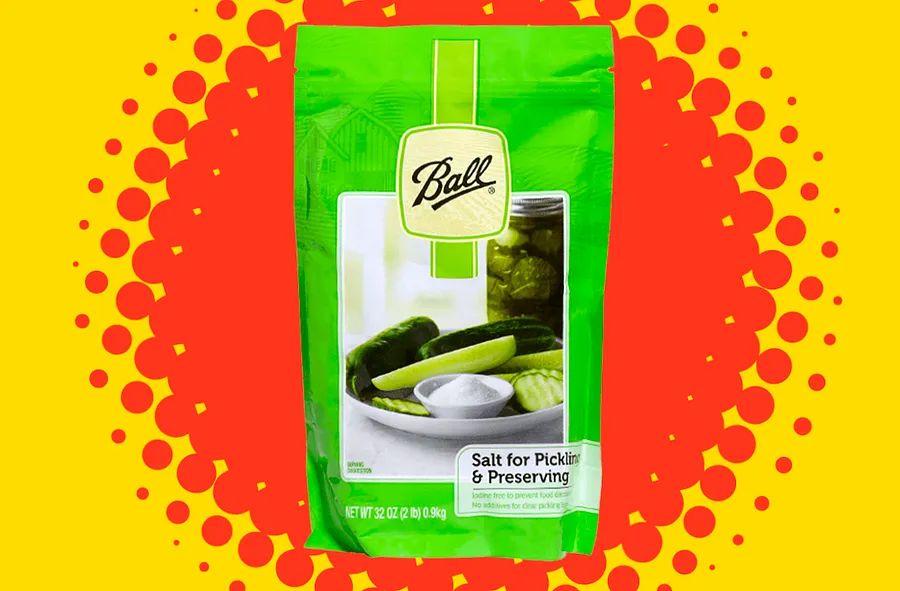What Is Pickling Salt and What Are the Best Substitutes?

While salt isn't required for canning every type of food, it's crucial for making fermented pickles and sauerkraut. According to the Pennsylvania State University Extension, "in fermented sauerkraut and brined pickles, salt not only imparts flavor but also plays a key role in safety, encouraging the growth of beneficial bacteria while preventing harmful ones."
So, when a recipe calls for pickling or canning salt, can you swap in any type of salt? The answer is a bit of both. Some salts perform better than others in place of pickling salt, but it's important to use the correct amount to avoid the risk of promoting harmful bacteria growth.
Before you start your next pickling project, it's essential to understand what pickling salt is and how to properly substitute it.
What Exactly Is Pickling Salt?

Pickling salt, also known as canning or preserving salt, is simply pure sodium chloride without any of the additives like anti-caking agents that are found in regular table salt. These additives can cause the pickle brine to appear cloudy or discolored, which is why they are excluded from pickling salt.
Its fine texture allows it to dissolve quickly in liquids, making it an ideal choice for canning and preservation. While it’s considered the best option, it’s not the only one available for these tasks.
Do You Really Need Pickling Salt? Alternatives to Pickling Salt

Pickling salt's fine texture and purity make it perfect for canning and preservation, though in a pinch, another type of salt can be used as a substitute.
Pickling Salt vs. Regular Table Salt
Table salt, or standard salt, contains anti-caking agents to prevent clumping. These additives are not water-soluble, and can cause the brine to become cloudy. While this doesn’t alter the flavor of the pickles, it can affect the clarity of the brine. For a clear brine, it's better to use pickling salt or other purer forms of salt.
Pickling Salt vs. Kosher Salt
Kosher salt can work as a substitute for pickling salt, provided it doesn't contain any anti-caking agents (which can vary by brand). Since kosher salt has larger crystals than pickling salt, you will need to adjust the measurements accordingly when swapping one for the other.
The University of Wisconsin Cooperative Extension advises weighing your pickling salt substitutes to ensure you’re using the right amount. Incorrect salt levels can encourage the growth of harmful bacteria, including botulism. Refer to the guide from the University of Wisconsin Cooperative Extension for accurate conversion when substituting kosher salt for pickling salt:
| Type of Salt | Weight | Measure |
| Canning and pickling salt (Morton®) | 7 ¾ oz. (220 g.) | 1 cup |
| Kosher flaked salt (Diamond Crystal ®) | 7 ¾ oz. (220 g.) | 1 ½ cups |
Pickling Salt vs. Sea Salt
While sea salt doesn’t contain additives, it’s not the ideal substitute for pickling salt due to its significantly different grain size and shape. This causes it to measure out differently by volume compared to pickling salt.
The Bottom Line
According to the University of Wisconsin Cooperative Extension, the only recommended substitute for pickling salt is kosher salt, provided you adjust the measurements accordingly.

Where to Purchase Pickling Salt
Other Uses for Pickling Salt
Pickling salt is simply salt, which means it has many uses beyond just pickling. You can substitute it for table salt (though keep in mind it may clump), or use it in other brines like turkey brine. Without anti-caking agents, it sticks well to food, making it perfect for sprinkling on snacks like popcorn or tortilla chips.
Evaluation :
5/5



